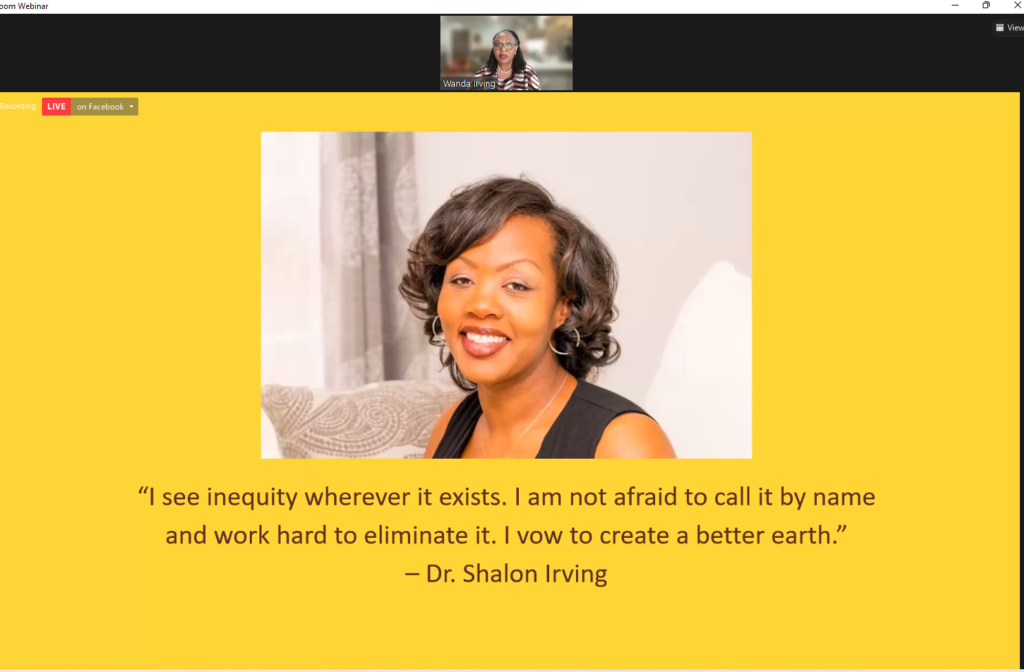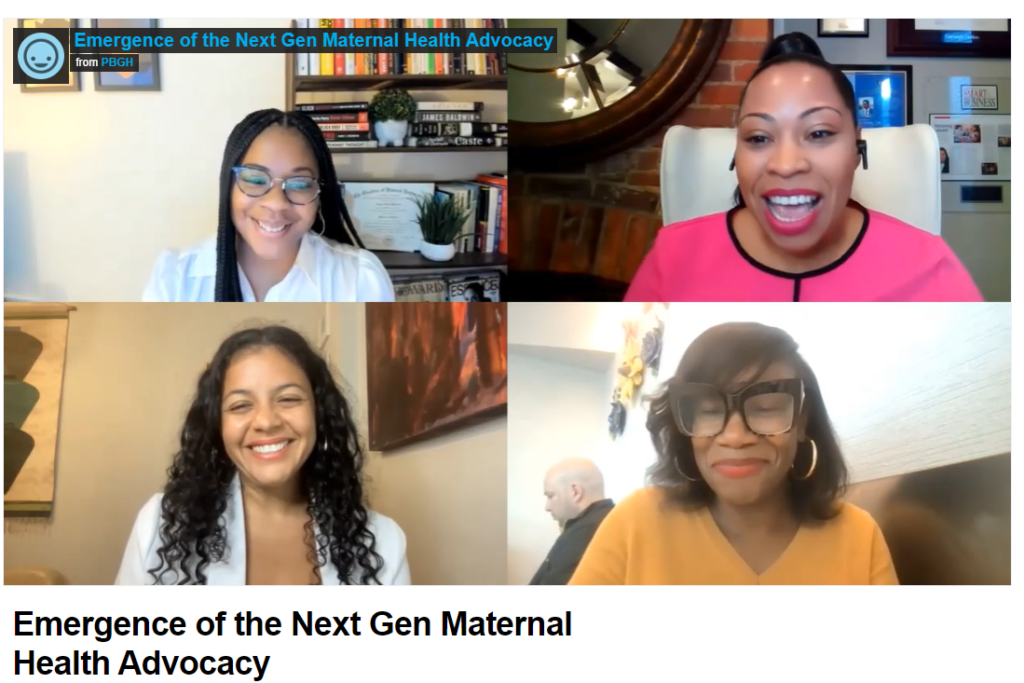On April 14th, PBGH held the second installment of our 2022 Health Equity Series. This series, that started in 2021, is devoted to pulling the curtain on the inequities that exists within maternal healthcare. In particular, the inequities that Black and Brown birthing people must face.
While part of this Series’ mission is to make people aware of these inequities, it also aims at what can be done to achieve true health equity. Digital solutions have become a big part of this space providing more tools to those needing maternal healthcare – during all phases.
We first heard from Wanda Irving, the keynote speaker of the event. Ms. Irving lost her daugther, Dr. Shalon Irving, in 2017 due to complications with her blood pressure, just three weeks after giving birth to her daugther. Dr. Irving went to the doctor’s multiple time but was continuously dismissed. Just five hours after returning home from one of her many doctor’s visit, Dr. Iriving suffered a cardiac arrest. She was DEVALUED, DISREGARDED, and DISMISSED. By the time she was finally admitted into the hospital, it was too late.
As Ms. Irving said, silence is no longer an option. She has made it her life’s mission to make that her daughter’s death is not in vain. Part of her mission includes the app “Believe Her,” which was created to give an opportunity for women to talk to other women going through the same situation. It’s a chance for women to be seen, heard, get help, and even heal. It provides a much-needed support system.

Learn more about her work here: www.drshalonsmap.org/
Our panel consisted of three women who built apps with the driving force being “built for us, by us.” Our moderator, Ashlee Wisdom, is Co-Founder and CEO of Health in Her Hue, “a digital platform that connects Black women and women of color to culturally sensitive healthcare providers, health content, and community.”
Ivelyse Andino and Kimberly Seals Allers rounded out our very knowledgeable panel. Ms. Andino is the Founder and CEO of Radical Health, a Benefit Corp made to address health equity by creating meaningful people-to-people conversations and circles that is supported and accessible by tech in between the in-person encounters. Ms. Seals Allers is the Founder of Irth, a “Yelp-like” app for Black and Brown people to address bias and racism in maternity and infant care with reviews on their lived experiences.
Common threads among the purpose and goals of these digital solutions include:
- Community
As a journalist, Ms. Seals Allers started to see a trend in Black and Brown women’s birthing stories. This jumpstarted her initiative in creating her app. She wanted every woman to see they were not alone. These apps connect people, creating a virtual village of support.
Not only are these apps created to build a community. It’s also important to think of the community as a source for solutions. The role of the physical community needs to be redefined. Instead of blaming it for the problem, focus on what it can do to help the problem. Instead of looking at it as something to fix, use the community as a source. These apps enable the community’s voice to be elevated, instead of always being blamed.
In both senses, we must “build with community first.”
- Solutions made for Black and Brown Women, by Black and Brown Women
Ms. Andino pointed out that the tech world is driven mostly by white males creating a giant gap around solutions for the Black and Brown community. Apps can solve actual pain points, as Ms. Wisdom said. But the best way to figure out these challenges is asking those who experience them!
- DATA!
Once again, data is a must! Not only does the data reveal what needs resolved. It also creates transparency! Power is at the core of racism. Technology has the ability to break the power imbalance within the healthcare system.
As simple as it sounds, you can’t change what you can’t see. Data creates granular, tangible numbers using LIVED experiences, not mortality rates. The data then can be used by everybody involved in the birthing experience to create solutions. This includes the provider, the educator, the administration, and the hospital plan, just to name a few. This system was not created to protect the people that have been historically silenced. We must work together to change this system. Hospitals and providers need to be open to being transparent, releasing the found data, and therefore, being able to see AND IMPLEMENT the clear solutions.
- Being the Conduit
Technology, in particular apps like these, can serve as a direct pipeline between the problem and the solution. Just like Ms. Wisdom said, these apps are, “Building solutions and leveraging technology as an advocacy tool to drive better health outcomes for Black and Brown mothers.”
Similarly, employers are conduits for their employees. Navigating the healthcare system is extremely challenging. Employees will need help in finding the correct care! Employers also need to look at their employees as human beings, not just someone in their workforce. This means thinking of their long-term overall well-being.
In thinking about all the positives that technology brings in terminating these health inequities, it is also important to remember that there are limitations. Not everyone has the same accessibility. But with time, persistence, and advocacy, these solutions will merge from the tech world into the real world.
To learn more about PBGH’s Health Equity Series and to view the past installments in full, please visit: https://pbghpa.org/health-equity/
Join us for the final installment of our 2022 Series on June 16th, 2022. Register here.

Post a Comment